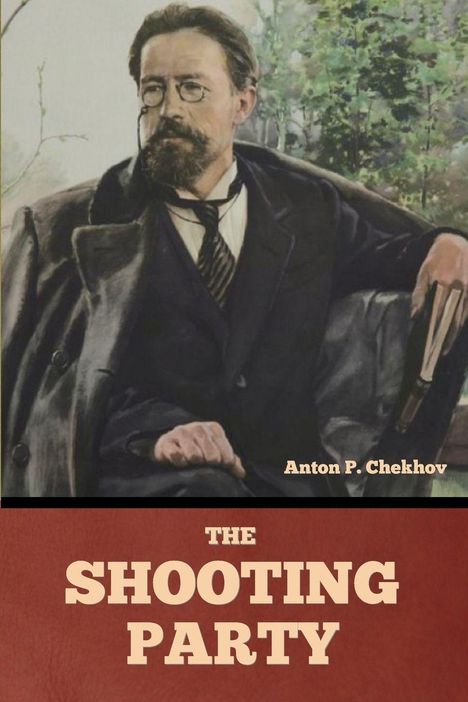Anton Pavlovich Chekhov: The shooting party, Kartoniert / Broschiert
The shooting party
(soweit verfügbar beim Lieferanten)
- Verlag:
- Bibliotech Press, 08/2025
- Einband:
- Kartoniert / Broschiert
- Sprache:
- Englisch
- ISBN-13:
- 9798897732364
- Artikelnummer:
- 12456508
- Umfang:
- 136 Seiten
- Gewicht:
- 233 g
- Maße:
- 229 x 152 mm
- Stärke:
- 8 mm
- Erscheinungstermin:
- 29.8.2025
- Hinweis
-
Achtung: Artikel ist nicht in deutscher Sprache!
Klappentext
The Shooting Party is a novella by Anton Pavlovich Chekhov, first published in 1884. It's notable for being Chekhov's only full-length detective story and one of his earliest extended works. The story is rich in atmosphere and psychological insight, blending elements of crime, mystery, and romance.
Set in the Russian countryside, the story is told through the framing device of a manuscript submitted to a magazine editor by a magistrate named Sergei Petrovich Zinovyev. The manuscript recounts a murder that occurred during a shooting party at a country estate.
The story explores the psychological burden of guilt and the lengths to which people will go to cover their crimes. Several characters are driven by romantic or sexual obsession, which leads to destructive consequences. Chekhov critiques the moral decay and entitlement of the upper class.
About the Author
Anton Pavlovich Chekhov (29 January 1860 - 15 July 1904) was a Russian playwright and short-story writer, widely considered to be one of the greatest writers of all time. His career as a playwright produced four classics, and his best short stories are held in high esteem by writers and critics. Along with Henrik Ibsen and August Strindberg, Chekhov is often referred to as one of the three seminal figures in the birth of early modernism in the theatre. Chekhov was a physician by profession. "Medicine is my lawful wife," he once said, "and literature is my mistress."
Chekhov renounced the theatre after the reception of The Seagull in 1896, but the play was revived to acclaim in 1898 by Konstantin Stanislavski's Moscow Art Theatre, which subsequently also produced Chekhov's Uncle Vanya and premiered his last two plays, Three Sisters and The Cherry Orchard. These four works present a challenge to the acting ensemble as well as to audiences, because in place of conventional action Chekhov offers a "theatre of mood" and a "submerged life in the text." The plays that Chekhov wrote were not complex, and created a somewhat haunting atmosphere for the audience.
Chekhov began writing stories to earn money, but as his artistic ambition grew, he made formal innovations that influenced the evolution of the modern short story. He made no apologies for the difficulties this posed to readers, insisting that the role of an artist was to ask questions, not to answer them. (wikipedia. org)

